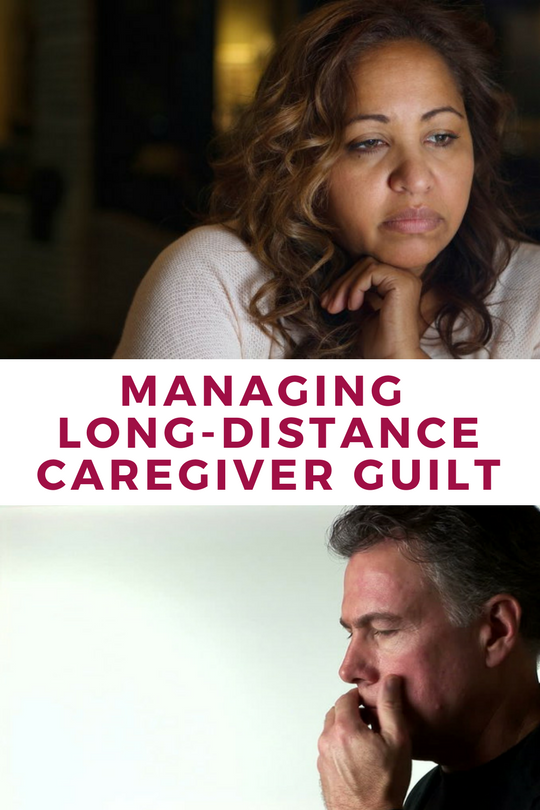
Life can be complex and emotional. For those who care for loved ones, there is an extra layer of responsibility. Long-distance caregiver’s often struggle with making sure they understand the needs of the care receiver while often feeling guilty about living so far away from those they are caring for.
Distance can make handling important decisions on medical health and living conditions difficult. What is often overlooked is the stress of guilt that often accompanies not being physically present to spend time with, comfort, and care for those we love.
According to Dr. Alexis Abramson, an expert on aging, “caregiver guilt is not only common, but is extremely destructive, making an already stressful situation even more challenging. It can make you feel tired, weak and immobile, explains Dr. Abramson, which in turn makes you less effective, not to mention unhappier.”
How can you cope with the guilt, destress, and maintain a level head? Here are a few valuable tips to help you manage long-distance caregiver guilt:
Keep in touch as often as possible.Many tech savvy Baby Boomers and Sandwich Generation caregivers create specific call schedules to speak with their parents and even video chat.
Visit when you can.Plan a visit as a moment to spend quality time with your loved one AND gather information for care decisions.
Accept your distance form your loved one.Understand that guilt is normal. Over 5 million Americans live an hour or more away from their parents. Proper planning and attention to detail can shorten the emotional distance.
Get Smart about daily health statistics.Stay in the care loop by exploring modern technology tools that integrate with every day health activities like blood pressure and glucose monitoring. Technological advances in health-related smart devices can help you worry less. See a list of products to consider
here.
Create a support system.According to an article featured on care.com, “there are ways to provide additional care for a loved one from a distance and gain peace of mind” when you reach out to “a religious organization, a nice neighbor or a senior care advisor,” or other “helpful resources such as meal delivery programs, community outreach, senior centers and public services.”
Stay positive.Continue to maintain a positive outlook by doing your best and reminding yourself that all you do goes beyond duty. It’s a labor of love and care. When you do all you can for your loved one, you should not feel guilty about doing your best. Take a moment to reflect on those victories.
Gain knowledge about your loved one’s condition and about caregiving itself.In an expert article featured on aarp.org, Gerontology expert Alexis Abramson, “advises reaching out to caregiving organizations that offer education and support, investigating elder-care benefits at work and resources in the community, and scheduling time for yourself.
Sources
http://www.nbcnews.com/id/46150872/ns/health-aging/t/millions-now-manage-aging-parents-care-afar/#.WdfoJVtSyUlhttps://www.firstlighthomecare.com/blog/2013/01/17/dealing-with-the-guilt-of-a-parent-living-far-away/https://www.care.com/c/stories/5593/9-tips-for-coping-with-remote-caregiver-guilt/http://lindascaregiverconnections.com/?p=1785http://www.aarp.org/home-family/caregiving/info-11-2012/managing-caregiver-emotions.htmlhttps://newoldage.blogs.nytimes.com/2009/09/04/being-there-and-far-away/https://www.agingcare.com/articles/caregiving-guilt-stop-feeling-guilty-126209.htmhttps://caregiver.com/articles/managing_caregiver_guilt/https://www.caregiverstress.com/stress-management/family-caregiver-stress/guilt-stress/http://blog.alz.org/taking-care-of-you-dealing-with-caregiver-guilt/https://thecaregiverspace.org/coping-caregiver-guilt-crushes/